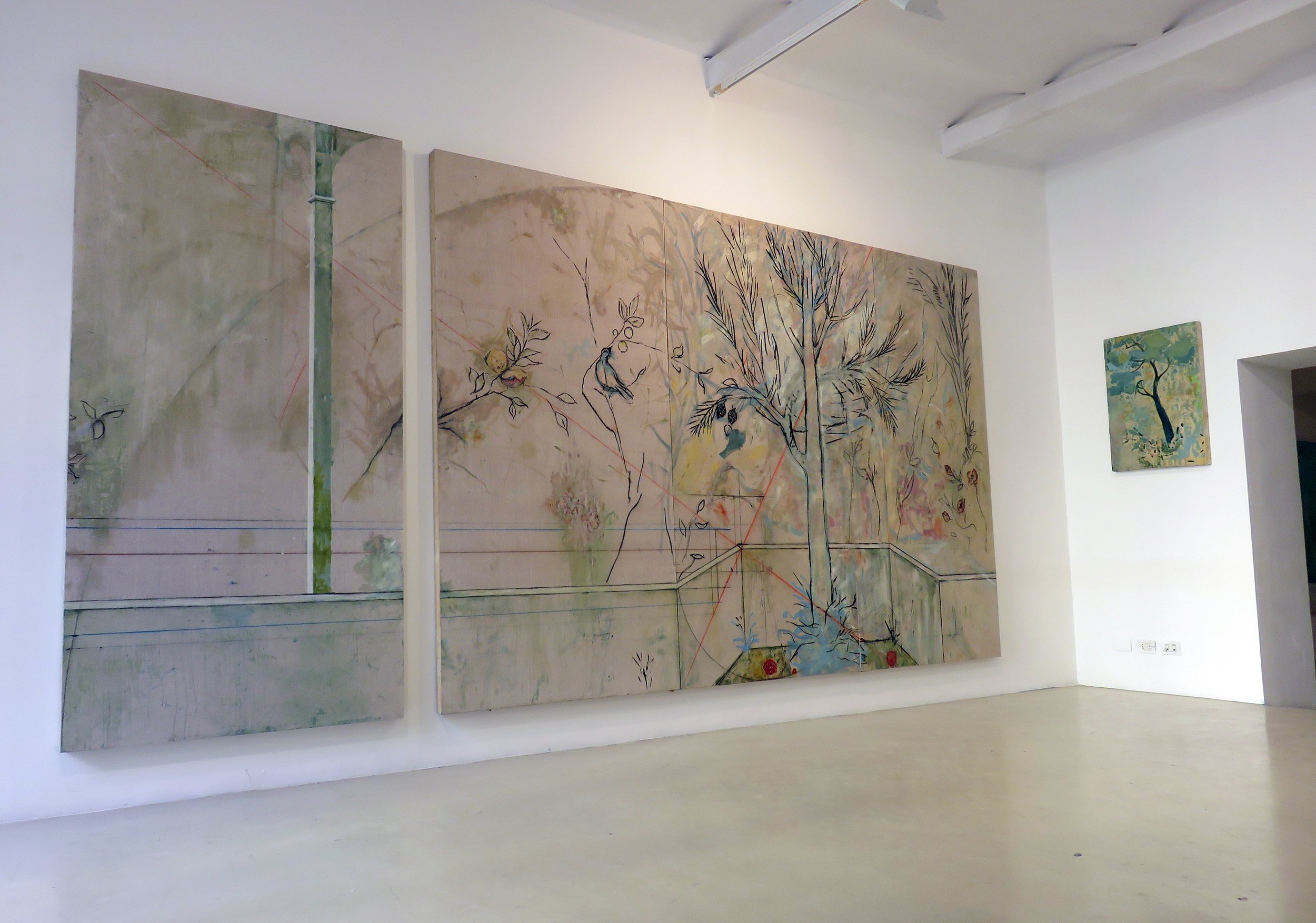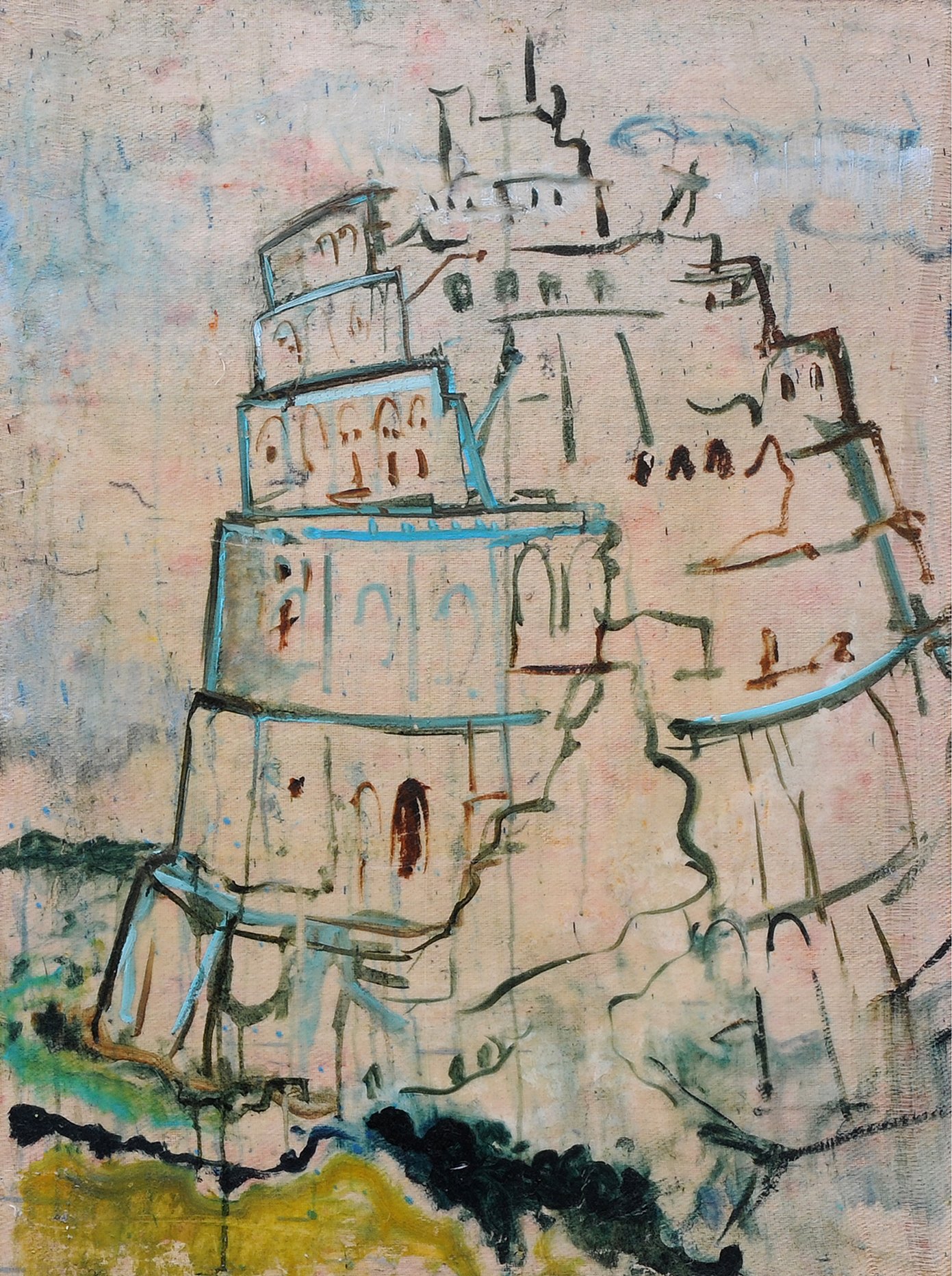An Impossible Garden at the Modernist Ruin
also known as
The Impossible Garden and the Chaos of Super-Thinking
Galleria Alessandra Bonomo
Via del Gesù, 62-00186 Roma
www.bonomogallery.com
20 March - 31 May 2015
"One beginning and one ending for a book was a thing I didn’t agree with. A good book may have three openings entirely dissimilar and inter-related only in the prescience of the author, or for that matter one hundred times as many endings." Flann O’Brien (from At Swim-Two-Birds, Ireland 1939)
Press Release
"Everything is forcing itself upon me, I no longer have to think about it, everything comes to meet me, and the whole gigantic kingdom becomes so simple that I can see at once the answer to the most difficult problems. If only I could communicate the insight and joy to someone, but it is not possible." Johann Wolfgang von Goethe, Italy 1786
The Impossible Garden is a series of works in oil, charcoal, chalk-line and beeswax encaustic. They are all made in response to an ancient trompe l'oeil fresco from a villa built in the late 1st Century BC for Caesar Augustus' wife Livia. The Garden di Livia. This original rendering of a Roman garden was designed to cool the senses in a semi-subterranean dining space during the heat of the Roman summer. What soon becomes apparent in looking at this original painting are the inconsistencies - obviously the flat plane is not a real garden but a simulacrum - but trees also blossom and fruit simultaneously, branches both bow to cooling breezes and are trapped in the hot stillness of a stifling summer afternoon, and those flittering birds are as still as death.
The Modernist Ruin paintings refer to St Peter's Seminary, a disused Roman Catholic seminary near Cardross in Scotland. Built in 1961 it has been described by the international architecture conservation organisation as a modern building of world significance. It is one of only 42 post-war buildings in Scotland to be listed at Category A, the highest level of protection for a building of special architectural or historic interest. It has been abandoned since the end of the 1980s, and is currently in a ruinous state.
There are now plans to restore part of the building to be used as an arts centre whilst the rest of the site will be opened to the public to be viewed as the first ever Modernist Ruin.

















